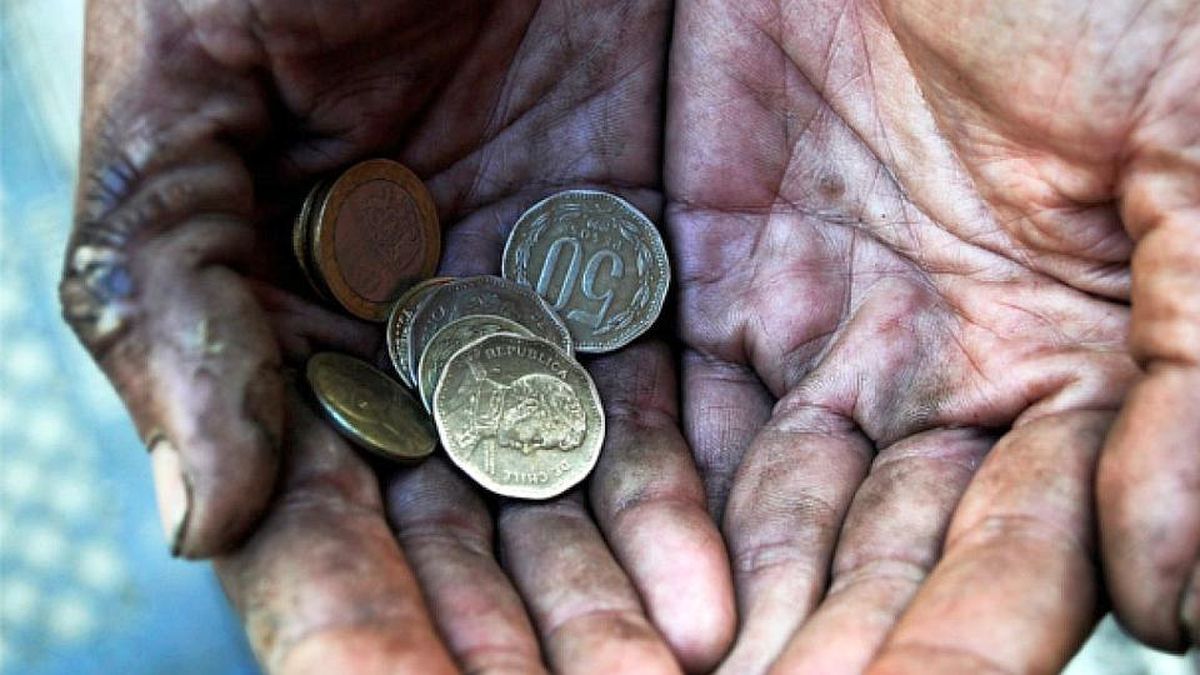In my perception, money does not make you happy, although it can help you achieve certain goals that you set for yourself.
I have been able to verify, working with dozens of millionaires, that many of them relate to the fortune they possess with guilt: it is as if that fortune had possessed them and for this reason, they do not enjoy, appreciate or generate the internal experience of satisfaction that they want to find.
What gives blame in many cases is the way in which the fortune was obtained. This marker is quite different in people who inherited it or received it in some unexpected way, than in others who generated it through their efforts. The perception is completely different.
A good way to start giving new meaning to this limiting phrase is to think of a legacy, something that transcends you beyond the money or not you have. I know of cases of people with very limited financial resources who are fully happy simply by helping others. As are billionaires who make enormous contributions to humanity with everything they can, including some who donate their fortunes entirely.
5 perspectives on money, happiness and emotional stability
In this article we will review whether it is true or false that money does not make you happy, from five perspectives, so that you can draw your own conclusions.
- First perspective: Happiness and well-being are different things
At the cerebral level, there are peaks of joy that people generate from segregating punctual and short peaks of serotonin, adrenaline and dopamine, which are part of the neurotransmitters associated with pleasure. This is why, with scientific reason, we think that happiness is moments.
Instead, well-being includes moments of happiness and is a more stable and lasting internal state that can be developed through behavior, attitude and emotions.
In the psychological approach, there is what is called the “hedonic set point theory”, which is precisely the internal reference point that each person has about what happiness is for themselves.
Life events largely define these references; for example, the number of positive significant milestones, such as having a longed-for child, earning very well, and being in very good health; or negative from the interpretation that each one makes, such as losing a job, entering bankruptcy or a very challenging illness.
In relation to the fact that money does not buy happiness, Psychology has studied that this adjustment occurs for some things and not for others. For example, obtaining material goods, no matter how abundant they are, produces a brief peak of euphoria, while what is related to positive personal milestones does so in a more lasting way.
Some practical resources: Detects the important points of well-being in you and your environment; adjust them to maintain a healthy balance and, as Buddhism affirms, a state of “content” that allows you to balance what you have with what you feel and your life goals. All this is achieved by working on your self-awareness and emotional and financial intelligence.
- Perspective Two: Economics Says The More You Have, The Better You’ll Feel Inside
Opposed to the principles of psychology, a huge number of economists argue that money does bring happiness. From that assumption, it would be quite easy to make people happier, because personal well-being could be improved by increasing income.
But how do the markets and themselves handle it every day? What about government measures where money is given to poor people, and they are getting poorer and more unhappy, not just those people, but the states that use these handouts, and the taxpayers who compulsorily finance them with their taxes?
The issue is that, no matter how much money you have and how much you want to keep getting richer, there is an internal set point that makes you feel a certain dissatisfaction that does not lead to total happiness. What does it mean? That no matter how much you move income up, if it is not compensated with the interior of the person (friends, family, health, healthy relationships with oneself and others, etc.), happiness will not be achieved.
practical resources: Evaluate how long the peaks of happiness last when acquiring material possessions, and how long with deep inner experiences. You can make a record of the high points of your life and remember them clearly. Draw conclusions about what you can promote to feel a more sustained state of well-being over time, regardless of your goals and achievements in any field.
- Third: Limiting beliefs about money
In addition to today’s trigger phrase, there are many others that instill popular sayings and that limit the relationship with money and, therefore, achieve it if that were your goal.
Abundance is not about money: it is about changing your state of mind. If you reject something, all you can do is resist it; and everything you resist, persists with more strength.
Some popular beliefs are:
– money is bad/dirty: therefore, you are a reflection of that.
– If you have money, you must have done something wrong: encourages the “poor, but honest” or “they steal, but they do.”
– money is only for rich people: contempt and unfounded prejudice for the one who generates and gives work, for example.
– money only brings trouble: as if that was the culprit of your mental rolls.
– My parents had a hard time earning money, so me too: here appears your victimization, placing the responsibility on your ancestors.
– There is not enough for everyone: limitation and conformism with what you are given or have, without a healthy ambition.
– If I have money I’m a bad person: demonization that has made culture, religions and the famous cult of poverty, as if it were a virtue. One virtue is humility, which has nothing to do with poverty.
– The more you have, the more you want: The idea is given that someone with an eagerness for money is insatiable and that this can corrupt and lead them astray in their ethics and values.
As tools: If you change your chains of limiting beliefs with some starting points, you will see how, in a few years, your life will take an important turn in the direction you want to achieve it. I always suggest balancing the internal experiences of well-being and happiness, with material achievements.
- Fourth perspective: The bad press of the word ambition
There is nothing wrong with wanting to have money in abundance; the point is to become greedy.
The word “ambition” has been put in the category of terms almost prohibited by all people who do not feel deserving of abundance in any aspect, even money. However, there is nothing negative about ambition itself.
A healthy ambition pushes you to go for your objectives and goals, to promote your development and growth in any aspect, and to enjoy what you are conquering.
To work this aspect: Design a life plan that contemplates a proposal for your economy and personal and family finances. Add your personal and professional development plan consistent with your values. From how much you want to earn and how you will do it, to how you will apply what you produce.
- Fifth: The paradigm of working hard to have more money
This belief deserves a separate space since it is the generator of anxiety disorders in most people immersed in an unhappy society.
Instead of working hard, the concept of “working smart” is becoming more common.
To make it: start analyzing your workflows and what you focus on energy, effort and time. An optimization of these three non-renewable resources will help you improve the relationship between time, productivity and results, including the money you earn. The more you optimize, the more effective you will be.
“Money can’t buy happiness, but neither can poverty.” This phrase by Leo Calvin Rosten summarizes that in neither extreme will we achieve a sense of well-being and happiness: the great key may lie in the balance.
Daniel Colombo, Executive Master Coach | Speaker | Motivation and Leadership.
Source: Ambito
David William is a talented author who has made a name for himself in the world of writing. He is a professional author who writes on a wide range of topics, from general interest to opinion news. David is currently working as a writer at 24 hours worlds where he brings his unique perspective and in-depth research to his articles, making them both informative and engaging.




